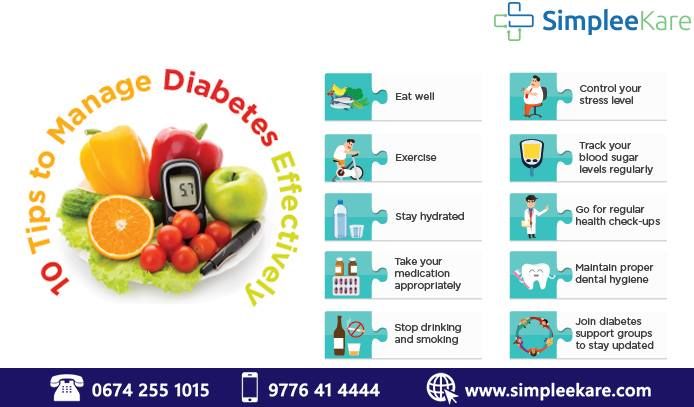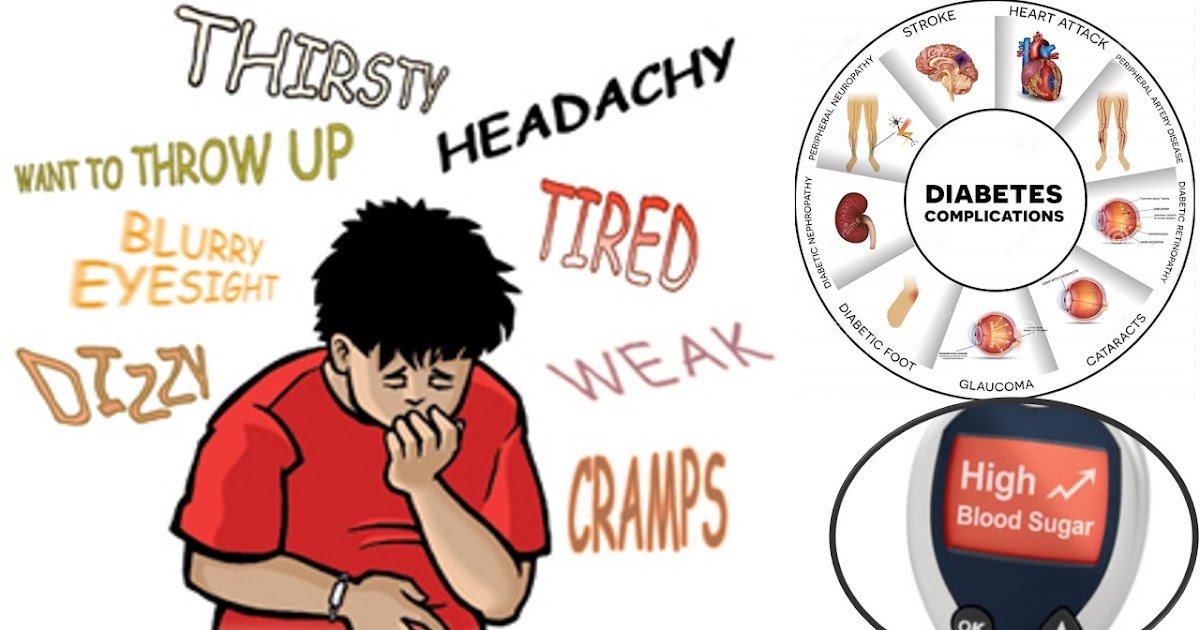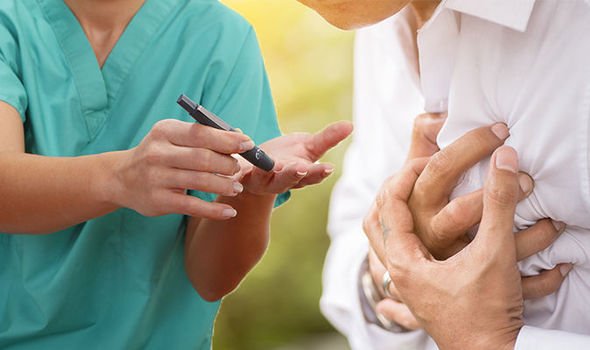What Can You Do To Limit Inflammation
While it may seem like inflammation is everywhere, there are steps that you can take to limit it.
Changes in your diet are among the easiest ways to decrease inflammation. Avoid refined carbohydrates, sugary beverages, and other foods that cause spikes in your blood glucose levels. Instead, increase your consumption of fiber, fruits, vegetables, nuts, seeds, and other low-glycemic-index foods, all of which may help lower your risks of cardiovascular disease and diabetes. The plant chemicals called polyphenols in green and black teas have been shown to lower levels of inflammatory markers, like CRP. Curcumin, present in turmeric, has been shown to help with inflammation in animal studies.
You already know that exercise, especially moderate intensity exercise, can help with weight lossbut it may also decrease the levels of proinflammatory chemicals in your body, regardless of how much weight you lose. And exercise decreases your risk of heart disease, diabetes, obesity and other medical problems, so its an all-around winner when it comes to improving your health.
Smoking and stress are two other factors that can increase inflammation. Similarly, people with sleep disorders, or who simply dont get enough sleep on a regular basis, are at higher risk of having chronic inflammation.
Epidemiology Of Infection And Diabetes
Communication between the endocrine and immune systems is not unidirectional. In response to pathogens such as Influenza A or SARS-CoV-2, we become weak, stop eating, get a temperature and generally feel miserable. This is because the immune system changes normal endocrine regulation of key metabolic processes in our body. Recent data indicates that the physiological changes in metabolism in response to infection may be a trigger for permanent deregulation of blood glucose levels. Many diabetologists will have anecdotal evidence that newly diagnosed patients with T2D had experienced infection in their recent history. In fact, international guidelines recommend screening for infection in newly diagnosed patients, especially if blood glucose levels are very high . Infection was recognized as a cause for increased insulin resistance almost 80 years ago . However, population studies to support this hypothesis have only recently started to emerge.
In summary, many infections are able to induce insulin resistance at least transiently, but whether all are a risk factor for development of T2D still requires confirmation.
What Is High Blood Glucose
To fully understand your blood glucose levels, itâs important to know: a) what values are actually considered high, and b) factors that can cause your elevated reading in the first place.
High blood glucose, also known as hyperglycemia, occurs when there is too much sugar in the bloodstream. Low blood sugar, or hypoglycemia, is the result of too little glucose in the bloodstream. Hyperglycemia usually occurs because your body doesnât produce enough insulin or canât properly use the available insulin to remove the glucose from the bloodstream.
Using milligrams of glucose per deciliter of blood for measurement, high blood glucose readings after a meal indicating prediabetes can fall between 140 and 199 mg/dL. Levels reaching 200 mg/dL two hours after eating indicate you may already be insulin resistant or diabetic, though that diagnosis will need to come from your doctor. By comparison, the typical standard for normal glucose readings is to remain under 140 mg/dL throughout the day and under 100 mg/dL after eight hours of fasting.
A range of lifestyle factors, habits, and health conditions can cause high blood sugar. To debunk common hyperglycemia myths, review causes and symptoms, and discuss the best ways to address them, we spoke with two experts on high blood sugar levels: registered dietitian and For The Love of Diabetes creator Lori Zanini and registered dietitian nutritionist and diabetes management expert .
Recommended Reading: How To Bring Blood Sugar Down Fast If Over 500
What Are The Symptoms Of Hyperglycemia
Its especially important to know the early signs of hyperglycemia if you have type 1 diabetes. If hyperglycemia is left untreated in people with type 1 diabetes, it can develop into ketoacidosis, where ketones, which are toxic acids, build up in the blood. This condition is an emergency situation that can lead to coma or death.
Early symptoms of hyperglycemia include:
- High blood sugar.
- Unusual fruity smell on the breath.
- Deep labored breathing or hyperventilation.
- Rapid heartbeat.
Type 2 Diabetes And Viral Infection Cause And Effect Of Disease

aCenter for Diabetes, Endocrinology and Cardiometabolism, Thallassotherapia, Opatija, Croatia
bDepartment of Endocrinology, Diabetes and Metabolic Disorders, Clinical Hospital Centre, Rijeka, Croatia
gDepartment of Internal Medicine, Faculty of Medicine, University of Rijeka, Rijeka, Croatia
You May Like: Long Term Side Effects Of Metformin
If My A1c Is Normal My Glucose Is Good
An A1C result thatâs below 5.7% is normal âs standards, but having a result below that number isnât the end of the story. Pregnancy, hemoglobin variants, anemia, liver disease, and certain medications can cause inaccurate A1C results.
Additionally, the A1C test is measuring your average glucose value over the past 3 months, but averages inherently do not capture highs and lows. So, you could have a normal average while also having abnormal glucose spikes. The A1C test should only supplement your regular blood sugar testing, not replace it completely.
Being Dehydrated When You Have Diabetes
Having a temperature or being sick can lead to dehydration. In some cases, severe dehydration and very high blood sugar levels can mean that you need to go into hospital.
So its important to be prepared and follow our advice on coping when you’re sick. You might want to give this information to a friend or family member, so they can help you if you get sick.
Recommended Reading: Insulin And Metformin Side Effects
Dos And Donts Of Managing Diabetes When Youre Sick
When youre sick, your body releases hormones that can raise blood sugar which is already a concern when you have type 2 diabetes. Find out what you need to know before the next cold or flu strikes.
Thinkstock
Type 2 diabetes doesnt take a day off even if youre feeling lousy because you have a cold or the flu. In fact, when youre sick, you need to be extra mindful to stay on top of your diabetes self-care. Thats because a cold, sinus infection, or the flu can put your body under stress, causing it to release hormones that help fight the illness but these hormones can also affect your blood sugar levels.
Infections, particularly serious ones, can lead to diabetes complications. The most dangerous although its rare in people with type 2 diabetes is diabetic ketoacidosis, which can lead to a diabetic coma, according to endocrinologist Alan Garber, MD, PhD, a professor of medicine in diabetes, endocrinology, and metabolism at the Baylor College of Medicine in Houston and president of the American College of Endocrinology. “Infection is a metabolic stress, and it raises your blood sugar,” Dr. Garber says. It can be hard to know how you will respond to each infection, he adds.
Being sick can also lead to dehydration, eating differently, oversleeping, and losing track of your schedule all of which can make diabetes management harder.
There are also many things you can do to help keep your diabetes under control if you do get sick.
Do Antibiotics Raise Blood Sugar Levels
Individuals having diabetes can consume antibiotics. This is vital to be familiar with, as having diabetes increases the risk of several kinds of infections, such as skin infections, UTIs, as well as infections in the hands and feet. If a person catches an infection, its similarly as important to appreciate a) the kind of infection a person has, b) what is its treatment plan, and c) the most appropriate type of treatment.
One such category of antibiotics, fluoroquinolones, might be more expected to result in severe swings in blood glucose levels. Thus, if a person suffers from a UTI, for instance, and his or her physician recommends Ciprofloxacin, then he or she may run the risk of having high and/or low blood glucose levels. Gatifloxacin, particularly, has been associated with serious hypoglycemia as well as hyperglycemia .
Research study has found that older adults having diabetes were consuming a category of anti-diabetic medications named sulfonylureas . The study also looked at patients who were given various types of antibiotics . These medications were found to be associated with greater rates of hypoglycemia , as well as of those hypoglycemic events, roughly 40% were linked with hospitalization and 60% with emergency department visits.
Also Check: Can You Get A Rash From Diabetes
All Carbs Are Created Equal
Phipps explains that, despite containing similar amounts of carbohydrates, one serving of pasta could have a hugely different effect on your blood glucose levels than one serving of rice. Likewise, that serving of pasta may have an entirely different effect on your blood glucose levels than your friendsâ or even family membersâ. âWeâre all unique,â Phipps says.
Normal Endocrine Control Of Immune Cell Function
During starvation, when adipose triglyceride stores are low, fat cells produce more adiponectin to signal nutrient scarcity. Adiponectin shares some functional properties with insulin, as it promotes glucose uptake and impairs hepatic gluconeogenesis. In immune cells, adiponectin inhibits activation of NF-B and promotes production of the anti-inflammatory mediators IL-10 and IL-1Ra by macrophages. High levels of adiponectin therefore reduce immune cell responsiveness . Human T cells stimulated with adiponectin were shown to have reduced antigen-specific expansion . Animals deficient for this adipokine showed increased T cell activation upon infection with Coxsackie virus . In the immune system, adiponectin therefore functions as an anti-inflammatory cytokine which lowers its energy expenditure.
In summary, key endocrine hormones involved in the regulation of metabolism also impact immune cell numbers and function, even in absence of overt infection.
You May Like: Can Diabetics Have Mac And Cheese
What Are Risk Factors For Hyperglycemia
Major risk factors for hyperglycemia are:
- You have a family history of type 2 diabetes.
- You are African American, Native American, Hispanic or Asian American.
- You are overweight.
- You have high blood pressure or cholesterol.
- You have polycystic ovarian syndrome .
- You have a history of gestational diabetes.
What Does High Blood Sugar Do To Your Body

Eating too much of any type of sugar can lead to spikes in your blood glucose levels, also called hyperglycemia. In most healthy people, the body responds to these spikes by releasing insulin, a hormone that works to bring glucose levels back down to normal. If, however, you repeatedly have too much glucose in your body, over time the cells become numb to insulin, causing blood sugar to rise. This state is known as insulin resistance and it is proinflammatory, potentially causing damage throughout your body.
One target of these harmful effects is yourendothelial cells, the cells that line your blood vessels. Repeated levels of high blood sugar can cause your blood vessels to produce damaging reactive molecules called free radicals, via compounds called advanced glycation end products . Too much free radical activity generates oxidative stress, damage to endothelial cell function, andinflammationin the blood vessels. Hyperglycemia can also causeoxidationof free fatty acids stored in your fat cells, which contributes to inflammation.
In addition, glucose causes theoxidationof low-density lipoprotein , increasing your risk of plaque build-up in your blood vessels. Another negative effect is that high blood sugar levels promote blood vessel constriction and platelet clumping, which can promote blood clots.
Recommended Reading: Decreased Glucose Tolerance
Can My Sinus Infection Getaway On Its Own
Undoubtedly sinus infections are very common within ten days, symptoms normally go away on its own. Over the counter medications and natural remedies prove to be helpful to get rid of sinus infections. In Spite of, if your symptoms last for more than ten days, immediately contact your doctor and seek medical help.
Who Is At Risk For Gum Disease And High Blood Sugar
If you have diabetes, you are at a higher risk level for gum disease and if you have gum disease, you become prone to developing diabetes because of the affect bacteria in your blood stream has in raising your blood sugar for prolonged periods of time. Here are a few things to know about people with gum disease:
- People with severe gum disease have more significant long term struggles with blood sugar levels.
- They are at a greater risk of developing type 2 diabetes as well as gestational diabetes.
- People have a harder time managing their type 2 diabetes symptoms when they have a tooth infection.
- They are also at a higher risk of harming their kidneys, eyes, or any other organs affected by diabetes and also have a greater chance of having a heart attack or stroke.
As you can see, this can become a very serious thing if left unchecked, but there are plenty of ways to keep these bad things from happening. Prevention
Whether or not you have diabetes, gum disease, or tooth infections, it is a great idea to keep your mouth as healthy as possible. If you have any questions or concerns about oral health, consult a dentist immediately, and get the knowledge required to keep your mouth clean and healthy. Here are a few things you can do to prevent gum disease and high blood sugar:
Also Check: Macaroni And Cheese Diabetes
Stress Increases Cortisol Which Affects Insulin Sensitivity
Youre overextended at work, theres a family crisis, and suddenly your blood sugar level is through the roof. Sound familiar? Stress definitely raises blood sugar levels, Dodell says. It increases cortisol, our fight-or-flight hormone. When cortisol goes up, it makes us less sensitive either to our bodys own insulin or to insulin injections.
Stress can be physical sustaining an injury, for example or mental, such as being beset with financial woes or marriage problems. Even positive changes to your daily routine a promotion at work or going on vacation can cause a sudden increase in blood sugar, he says.
The best ways to de-stress and get the hormones back under control? People often turn to food, which doesnt help, Grieger says. But we can learn new ways to manage stress. There are things you can do when youre right in the moment when tension at work suddenly makes you want to pull your hair out. Go for a five-minute walk or take 10 deep breaths to slow your breathing, she says. And there are regular habits you can develop, like establishing a daily exercise or meditation routine.
Does Sinus Infect And Diabetes Affects Each Other
Sinus infection and diabetes definitely affect each other. A diabetic patient has low immunity towards infection as compared to a non-diabetic person. Diabetic patients use decongestants to relieve common flu, cold, or sinus infection. It contains certain ingredients that raise your blood glucose level.
You May Like: Does Insulin Lower Blood Pressure
Diabetes Illness And Ketones
People with type 1 diabetes are more susceptible to a dangerous condition called ketoacidosis .
It is recommended to do a test for ketones if your blood sugar rises above 15 mmols/L.
This is usually a urine test but a few blood glucose meters allow for blood testing for ketones in a similar way as testing for sugar levels.
Diagnostic Test For Sinus Infection
Your physician will feel the tenderness in your face and nose, and usually, diagnose your sinus infection through the physical examination.
Some other methods are used in the diagnosis of sinus infection, and they include:
An endoscope that is a flexible and thin fiber-optic light allows doctors to examine visually through your nose and check the inside of your sinuses.
Also Check: Metformin Xr Dose
The Link Between High Blood Glucose And High Infection Risk
High blood sugar levels increase the chances of a dangerous infection in those with diabetes, experts have long known. Infections in the feet and hands of those with diabetes that can’t be brought under control with antibiotics can result in amputation.
Now, scientists say they may have discovered the mechanism that sets this into motion on the molecular level. What appears to happen, say researchers, is that the levels associated with type 1 and type 2 diabetes unleash destructive molecules that hamper the body’s natural immune defenses that fight infections.
When blood sugar is out of control, “you have the production of these bad molecules that can attach to certain proteins, and at least in the laboratory we have shown there is a significant effect on immune function,” says Wesley Williams, PhD, a research scientist who conducted the study while at Case Western Reserve University School of Dental Medicine.
Eventually, he says, the discovery may lead to the development of better antimicrobials to fight infection. First, however, he says, “we have to confirm that the high degree of function loss that we see against bacterial and immune cell attacks in the laboratory is going to be as dramatic in a living diabetic.”
The study was published in PLOS One on Aug. 5.
As the bad molecules accumulate, the infection-fighting peptides could be overwhelmed, Williams says.
Surprising Things That Can Spike Your Blood Sugar

When you first found out you had diabetes, you tested your blood sugar often to understand how food, activity, stress, and illness could affect your blood sugar levels. By now, youve got it figured out for the most part. But thenbam! Something makes your blood sugar zoom up. You try to adjust it with food or activity or insulin, and it dips really low. Youre on a rollercoaster no one with diabetes wants to ride.
Do you know all of these blood sugar triggers?
Knowledge is power! Look out for these surprising triggers that can send your blood sugar soaring:
Don’t Miss: Overdose Of Diabetic Tablets

